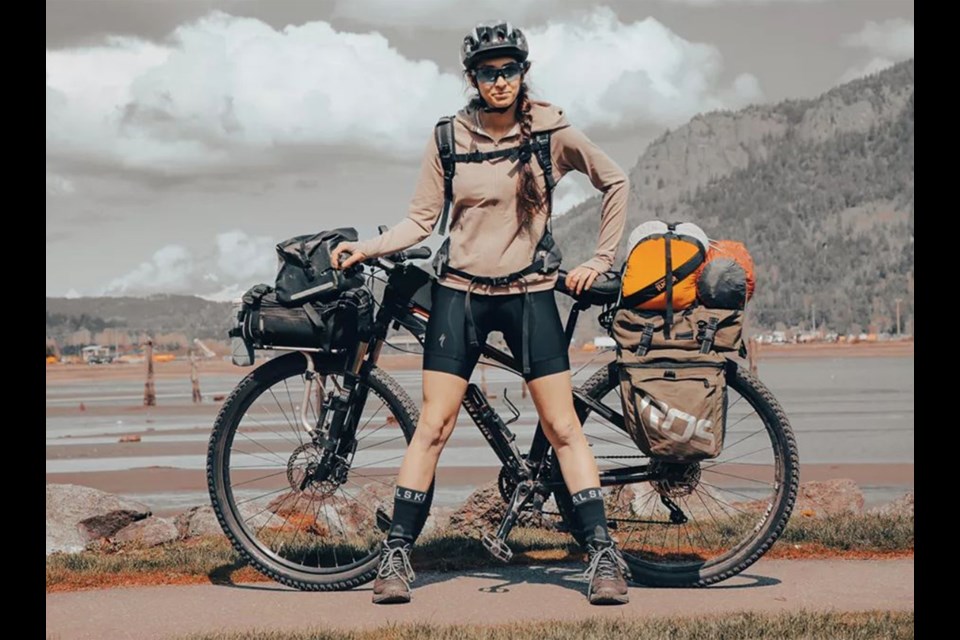Some cyclists find fitness. Others find their destination.
Mahshid Hadi found herself.
The young Iranian woman who lived in Coquitlam for a year after fleeing her homeland has documented her search for identity aboard a bike in a short film, Escape and Embrace, that premieres Saturday, Feb. 24, at the Vancouver International Mountain Film Festival (VIMFF24).
Hadi, 32, said cycling adventures were a forbidden pleasure when she was a girl growing up in the central Iranian city of Isfahan.
While Hadi was able to taste freedom on two wheels when she was very young, she said once she turned nine, everything changed. That’s when Iranian law and religious rules begin to treat girls as women and their lives become very restricted.
Hadi could be as free and animated as she liked within the confines of her own family’s home, but once she walked out the door every aspect of her life and interactions with other people were dictated. She had to sit and walk a certain way, wear certain clothes, talk to boys in only very defined circumstances.
And though there was no specific rule forbidding her from riding her bike, authorities made it clear it wasn’t an acceptable activity.
Hadi’s life, once so free and adventurous, suddenly became very confining.
“I wanted to be a free-spirited girl, I wanted to do everything I had the potential to do as a girl,” she said. “I couldn’t be who I wanted to be.”
The trauma within her built up.
So, at 19, Hadi got out, secreted away by friends and associates to Türkiye (formerly known as Turkey).
There, Hadi said, she had freedom but not comfort. She couldn’t work officially, so she cobbled together a living teaching English to other refugees.
With the money Hadi was able to save, she bought a bike to be able to visit students in other refugee camps.
“Bit by bit, I left all my traumas on the road,” she said.
When Hadi’s application to immigrate to Canada was accepted, her love for cycling came with her.
In her new home, Hadi rode everywhere, Partly because she didn’t have a car, partly as an expression of her newfound liberty.
“It was a dream come true,” she said. “I felt this is a road and nobody can stop me from riding it. I don’t have to explain my riding.”
Last fall, Hadi said she felt a pull to push her cycling journey of self-discovery to a higher level and to share her story. She knew it needed to be a difficult trip, where the obstacles were not societal rules and religious edicts but the weather and terrain.
“I needed to feel vulnerable,” Hadi said. “But I wanted it to be my choice.”
Hadi pedalled the Dempster Highway from Dawson City towards Inuvik, about as far north as you can go on rubber tires.
And while a storm prevented her from reaching the road’s terminus, Hadi said the journey gave her a sense of finality to her past.
“This was the end of the road from all those restrictions I felt in Iran,” she said. “It was just me and the land.”
Hadi said the four-day trip may be over, but her journey toward self-discovery aboard her bike continues, She said her LIV gravel bike is her buddy, her port in the storm of life’s twists, turns and uncertainties.
“Any difficult time I go through, I know I can get on my bike and just let everything go.”
Hadi’s film, which documents the meaning of her ride along the Dempster Highway, is part of Bike Night at VIMFF24 where it will be screened with six other cycling films at Centennial Theatre in North Vancouver.
More information about the films as well as a link to purchase tickets can be found on the festival’s website.





